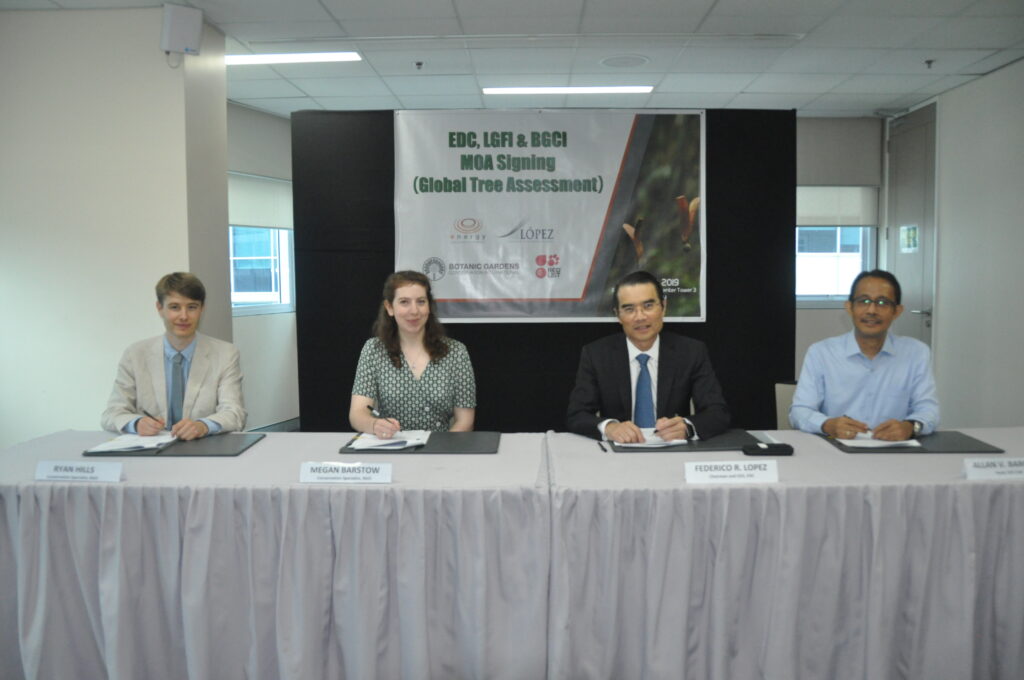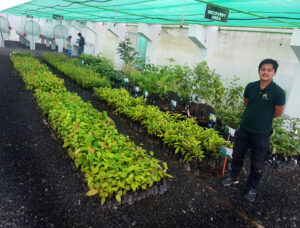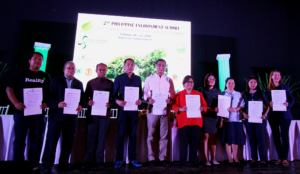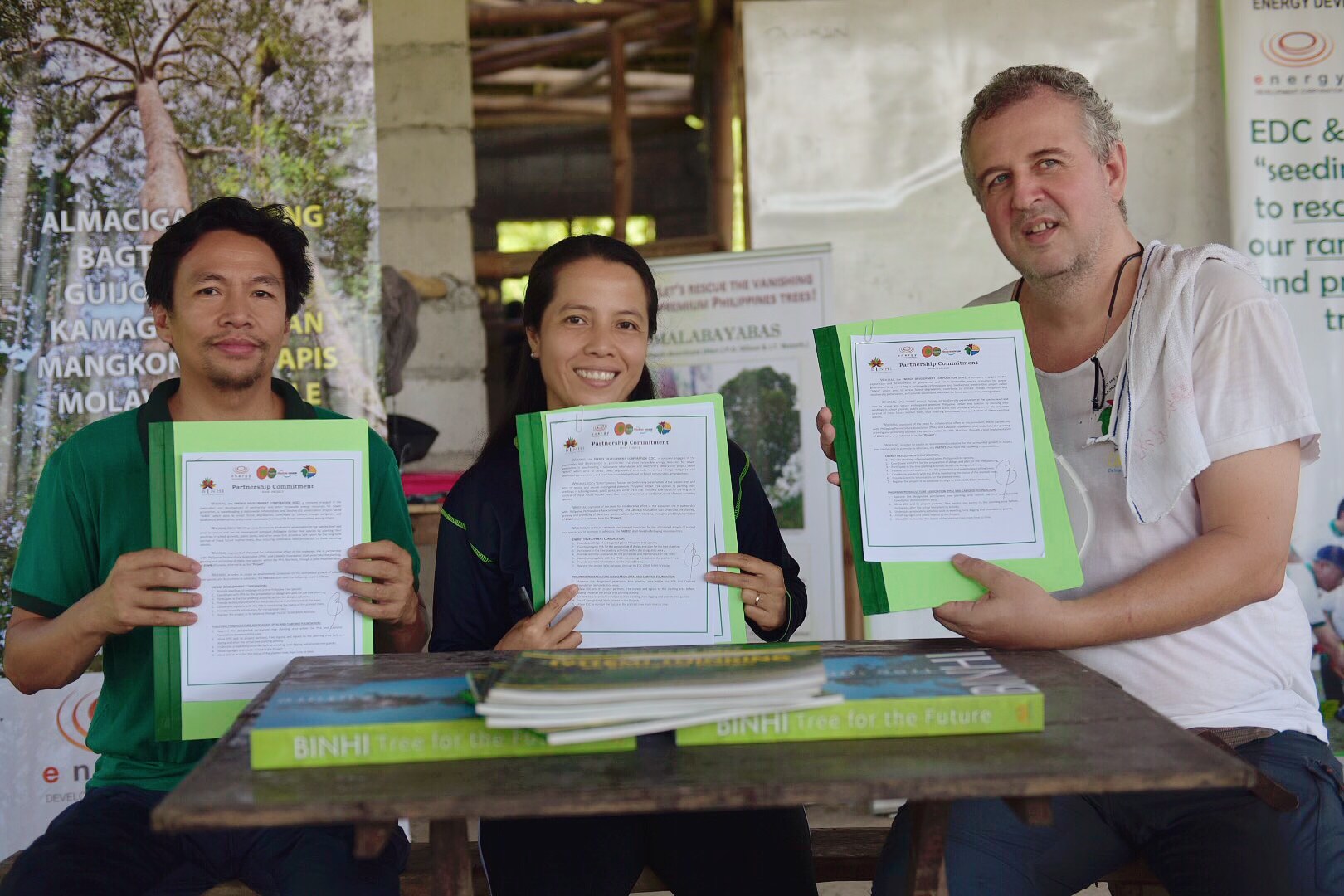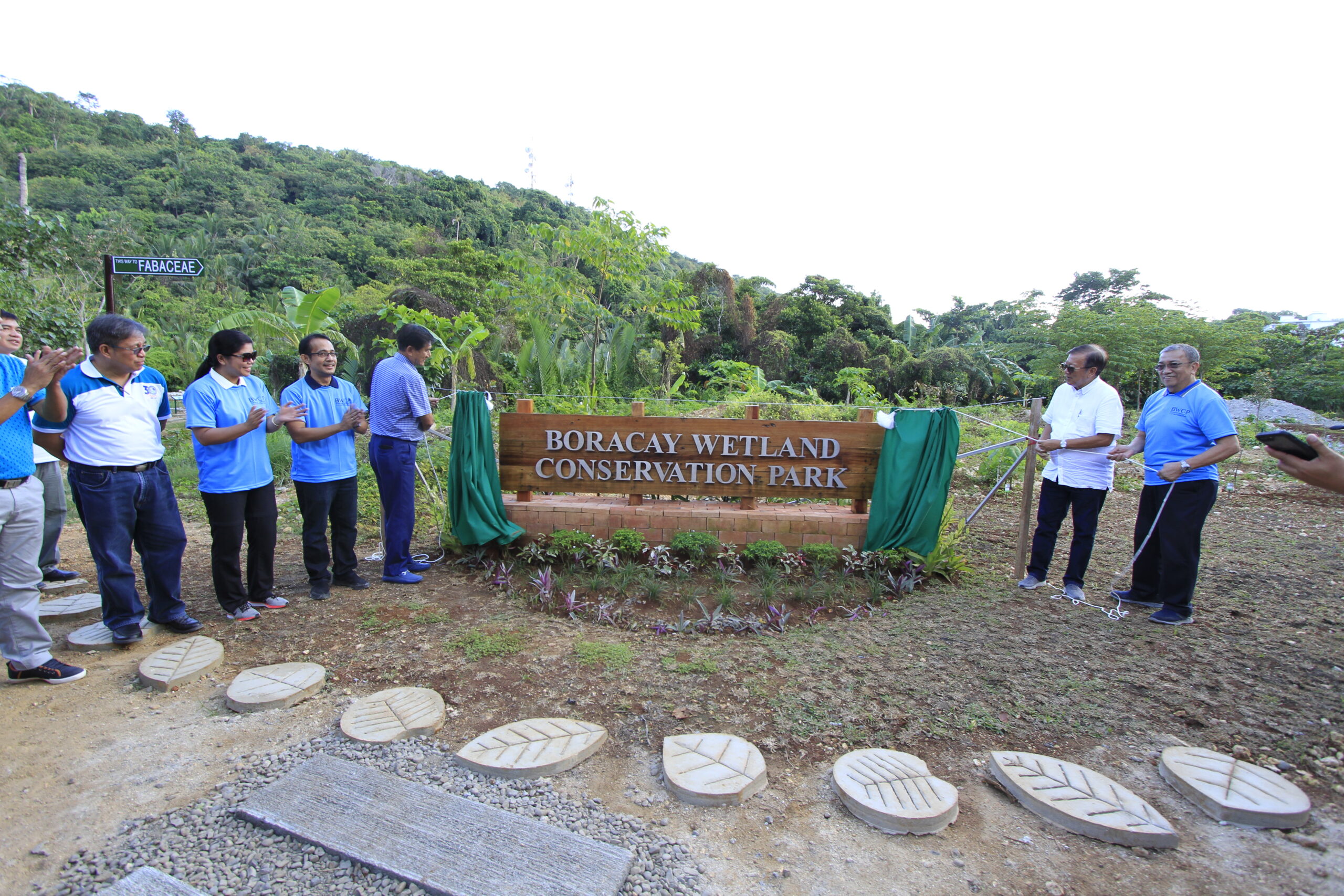Botanic Gardens Conservation International (BGCI), the world’s largest plant conservation network and the secretariat of the International Union for Conservation of Nature (IUCN), has tapped Philippine renewable energy leader and geothermal producer Energy Development Corporation (EDC) as the first and only local partner for its Global Tree Assessment program (GTA).
IUCN is the global authority on the status of the natural world and the measures needed to safeguard it, such as data gathering and analysis, research, field projects, advocacy, and education. Through the GTA, BGCI aims to come up with the world’s first global list of tree species and their conservation assessments by 2020.
According to BGCI, only 25,000 of the world’s 80,000 tree species have been assessed globally or nationally for their risk of extinction. Through EDC’s BINHI corporate social responsibility (CSR) initiative, BGCI will be able to obtain information on 800 Philippine endemic tree species.
BINHI is EDC’s flagship environmental program since 2011 that has successfully reforested 9,500 hectares with indigenous species, and has also succeeded in searching, sampling, and propagating 96 premium native tree species under threat of extinction. Most recently, as part of BINHI’s aim to upgrade the conservation status of 35 species, EDC submitted data on five endemic Xanthostemon species to the Department of Environment and Natural Resources (DENR) as well as the IUCN, which paved the way for the partnership.
Under the partnership, EDC will receive a grant of £16,160 or more than P1 million over a two-year period. BGCI will also train the BINHI team, its partner organizations and the DENR on the IUCN Red List methodology, a vigorous and internationally respected procedure following strict guidelines and data requirements on extinction risk assessments.
“We want to enhance and harness the Philippines’ expertise and share it with the world. Hopefully, the Red List Assessments we’re producing for the Philippines will enable us to do that, to share what you’re learning in the Philippines with the world through our networks,” said visiting BGCI conservation specialist Megan Barstow.
For EDC, the partnership boosts ongoing efforts to protect the environment, promote sustainable progress and address an unprecedented pace of species extinction. “This partnership with the IUCN and BGCI could not have come at a more opportune time. We welcome the privilege—albeit the daunting task of being the Philippines’ first and only assessor of 800 native trees species,” said EDC chairman and chief executive Federico Lopez.
“The engagement can only take EDC’s biodiversity conversation programs several steps further as we learn best practices in proper global tree assessment and link up with BGCI’s network and other botanic gardens all over the world,” said Lopez.


